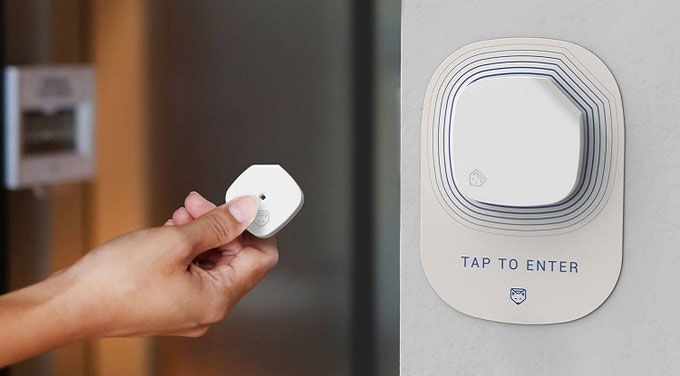A device containing a biosensor that detects nCoV through people’s breath in the workplace, identifying 8 variants of this virus.
Researchers from the Royal Melbourne Institute of Technology (RMIT) and the Burnet Institute in Australia have successfully developed a rapid detection biosensor for the nCoV virus.

The sensor can detect 8 variants of the nCoV virus. (Photo: RMIT).
The device includes a biosensor made with micro-scale specifications, utilizing flexible microelectronic techniques and artificial nanotechnology to avoid false identification of the virus. It is designed to recognize nCoV through the breath of individuals in specific environments. Users are provided with an additional chip containing personal information, making it easier to isolate areas if nCoV is detected.
Dr. Alasdair Wood, a member of the research team, stated that current environmental virus sensors are large, energy-consuming, and can only detect one type of virus. This compact sensor can be worn like a badge or attached to the walls of offices or hospitals, capable of detecting up to 8 variants of the virus.
“A green light on the sensor indicates that the environment is safe. If the sensor shows a red light, it suggests that nCoV may be present, and everyone in that area needs to get tested for Covid-19 and undergo quarantine,” Dr. Alasdair Wood mentioned.
Test results indicate that the device can accurately detect mutations in the spike protein of the nCoV virus. The research team believes that this technology can identify nCoV even in individuals who are infected but asymptomatic. Plans are in place to commercialize this sensor model by early 2022.



















































